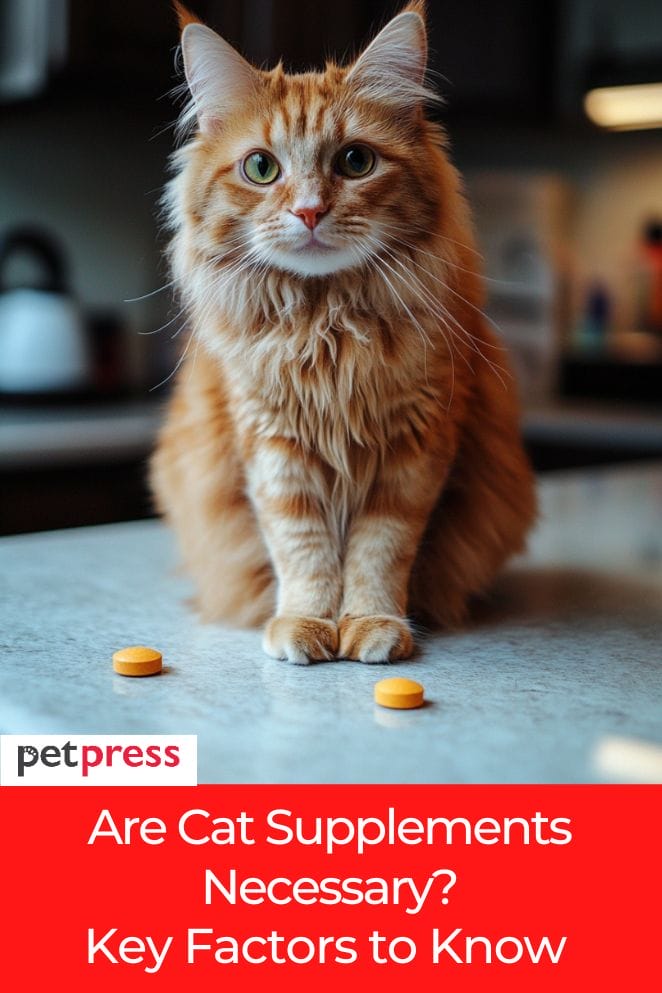
As cat owners, we always want the best for our furry friends.
From picking the right food to giving them plenty of love and playtime, their health and happiness are what matter most.
But when it comes to cat supplements, it’s natural to wonder: Are they truly needed, or are they just another product being marketed to pet owners?
The Basics of Feline Nutrition
Before discussing supplements, it’s essential to understand a cat’s dietary needs.
Cats are obligate carnivores, which means they primarily rely on meat to thrive.
Their bodies are designed to absorb essential nutrients like protein, fat, vitamins, and minerals from animal sources.
A high-quality commercial cat food, whether dry or wet, is typically formulated to provide all the essential nutrients your cat needs.
According to the Association of American Feed Control Officials (AAFCO), complete and balanced cat food must meet specific nutritional standards for proteins, fats, vitamins, and minerals.
Key nutrients cats need:
- Taurine: Essential for heart and eye health.
- Arginine: Vital for ammonia detoxification.
- Vitamins A and D: For vision and bone health (cats can’t produce these from plant sources).
- Omega fatty acids: Supports skin, coat, and joint health.
However, individual cats may have unique needs based on their age, breed, health conditions, or activity levels.
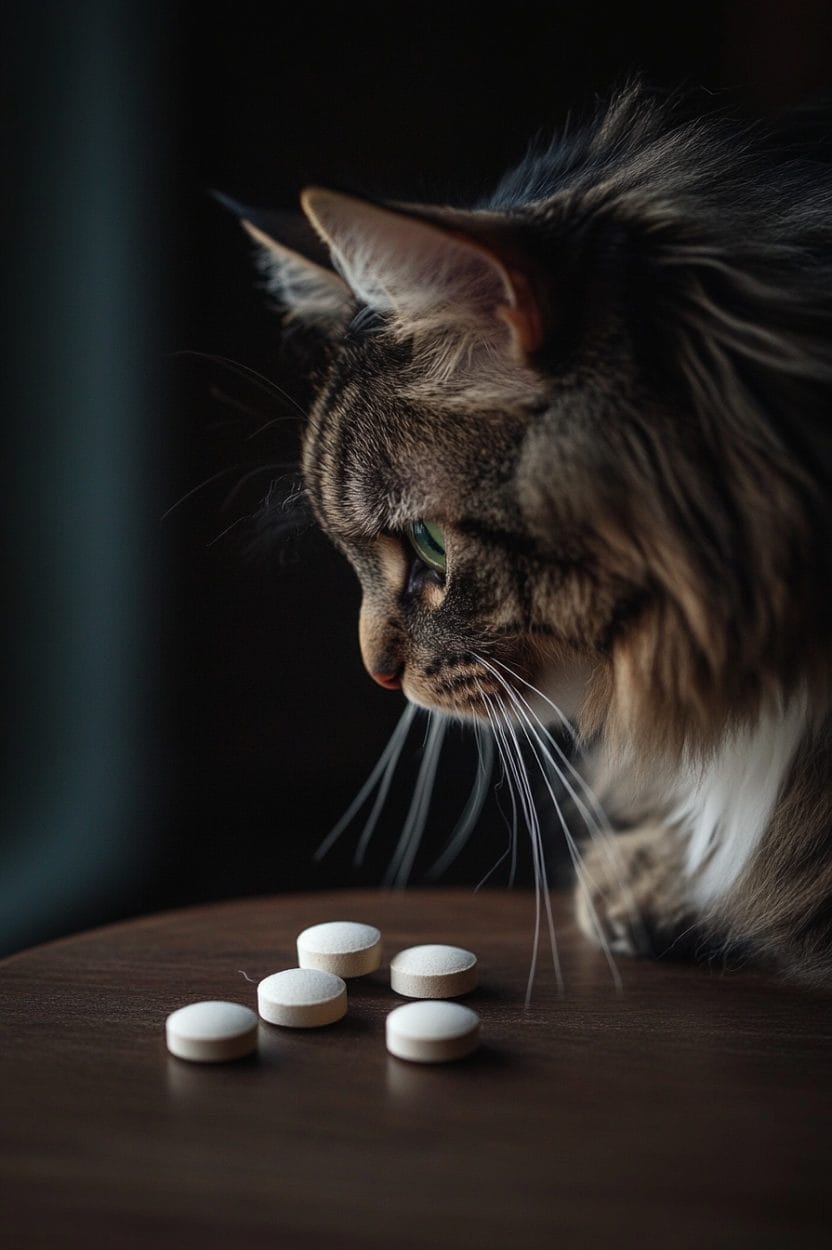
Types of Cat Supplements
The market is flooded with a variety of supplements claiming to enhance your cat’s health.
Here are the most common types:
Omega-3 fatty acids
Omega-3s are often recommended for cats to promote a shiny, healthy coat and to keep their skin in good condition.
They’re also known to reduce inflammation, which can be especially helpful for cats with arthritis or other inflammatory conditions.
Probiotics
Probiotics are beneficial bacteria that help maintain a healthy balance in your cat’s digestive system.
They can be especially useful if your cat has a sensitive stomach, has recently taken antibiotics, or struggles with diarrhea or constipation.
Joint supplements
As cats age, they can develop arthritis or joint pain, which can make moving around more difficult.
Supplements like glucosamine and chondroitin are commonly used to support joint health.
Vitamins
While a balanced, high-quality cat food should provide most of the vitamins your cat needs, a multivitamin can help fill in any nutritional gaps.
This is especially true for cats with specific health conditions or those on diets that might lack certain nutrients.
Taurine supplements
Taurine is an essential amino acid that cats need to maintain healthy vision, heart function, and overall well-being.
Most commercial cat foods are fortified with taurine, but if you’re feeding your cat a homemade diet, they might not be getting enough.
Hairball remedies
Cats, especially those with long fur, can often struggle with hairballs.
Supplements designed to prevent hairballs usually contain fiber or lubricants to aid digestion and help your cat pass hair naturally through their digestive system.
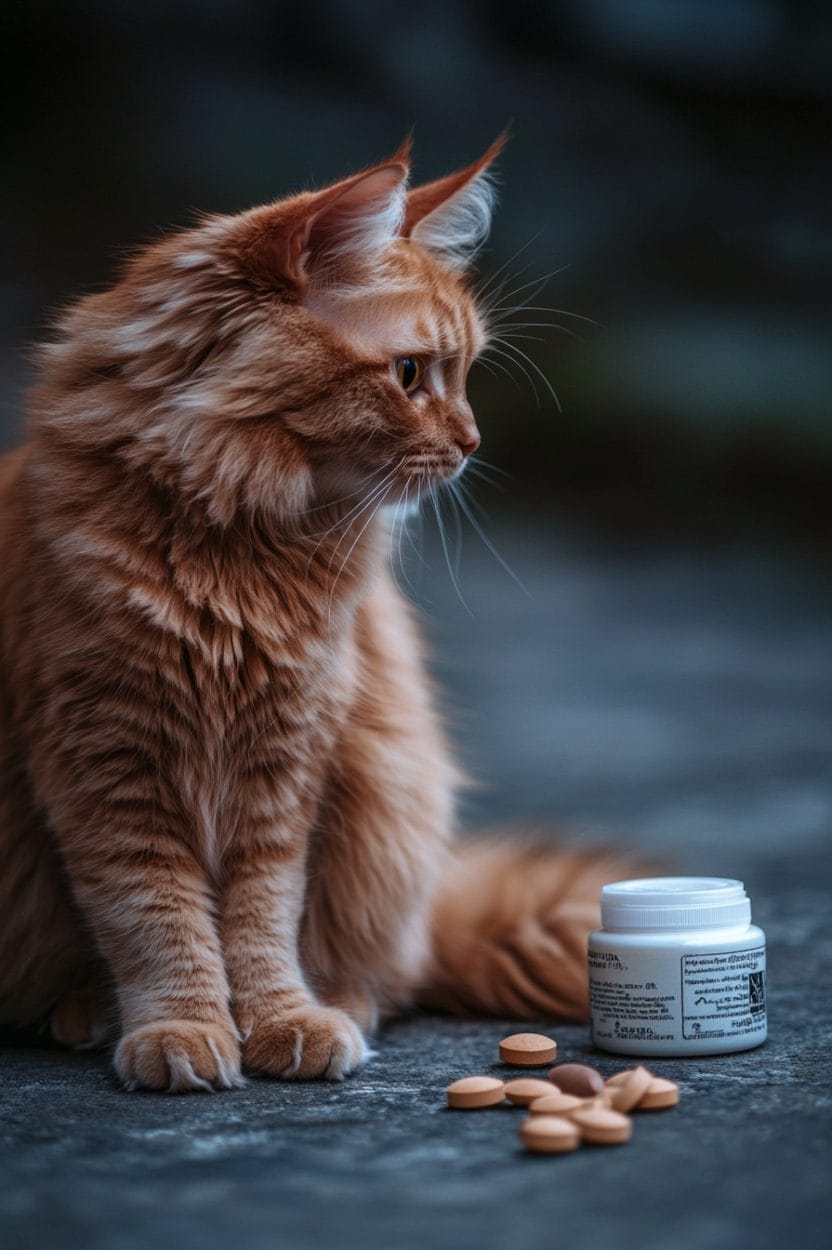
Do Cats Really Need Supplements?
In most cases, healthy cats eating a balanced, AAFCO-approved diet don’t require additional supplements.
Their food already provides the nutrients they need to thrive.
However, supplements may become necessary in certain scenarios:
Cats with specific health conditions
If your cat has a medical issue, supplements may play an important role in their care.
For example, a cat with arthritis might benefit from glucosamine to ease joint pain and improve mobility.
Similarly, omega-3 fatty acids from fish oil can reduce inflammation and support overall health, making them beneficial for cats with conditions like kidney disease or heart problems.
Homemade diets
Feeding your cat a homemade diet can be a great way to tailor their meals, but it’s also easy to miss critical nutrients.
Cats have specific dietary needs, including taurine, calcium, and vitamin D, that must be met to keep them healthy.
If you prepare their meals yourself, supplements can help fill in any nutritional gaps.
Senior cats
As cats age, they may develop conditions that benefit from targeted supplements.
Joint supplements like glucosamine can help with arthritis, while other products might support cognitive health or boost energy levels.
Supplements tailored to senior cats can make a big difference in their quality of life.
Fun fact: Research shows that omega-3 fatty acids, such as those in fish oil, can improve mobility in cats with arthritis, helping them move more comfortably and stay active longer.
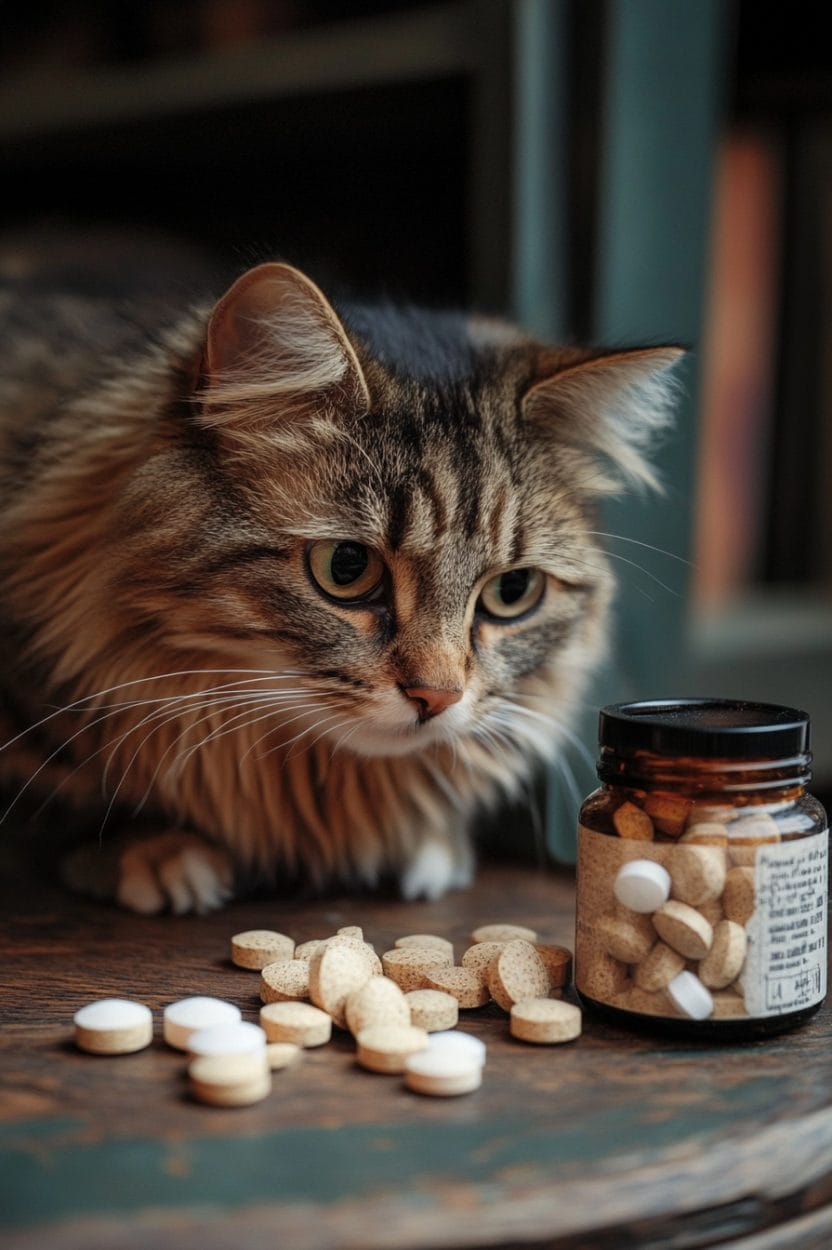
When Are Supplements Necessary?
Supplements can be beneficial in certain situations, but it’s important to use them wisely.
Here are a few scenarios where supplements might be a good idea:
Veterinary recommendation
Your veterinarian is the best person to guide you on whether your cat needs supplements.
They can run tests to check for nutritional deficiencies or underlying health conditions.
If supplements are needed, your vet will recommend the right type and dosage to support your cat’s health.
Specific nutritional deficiencies
If your cat has been diagnosed with a deficiency, such as low vitamin B12 levels, supplements become essential to correct the issue.
Nutritional gaps can affect your cat’s energy, digestion, and overall well-being, so addressing them is crucial for their health.
Supporting recovery
Cats recovering from surgery or illness may need extra support to regain their strength.
Supplements can provide a boost by promoting healing, improving energy levels, or supporting a weakened immune system during their recovery process.
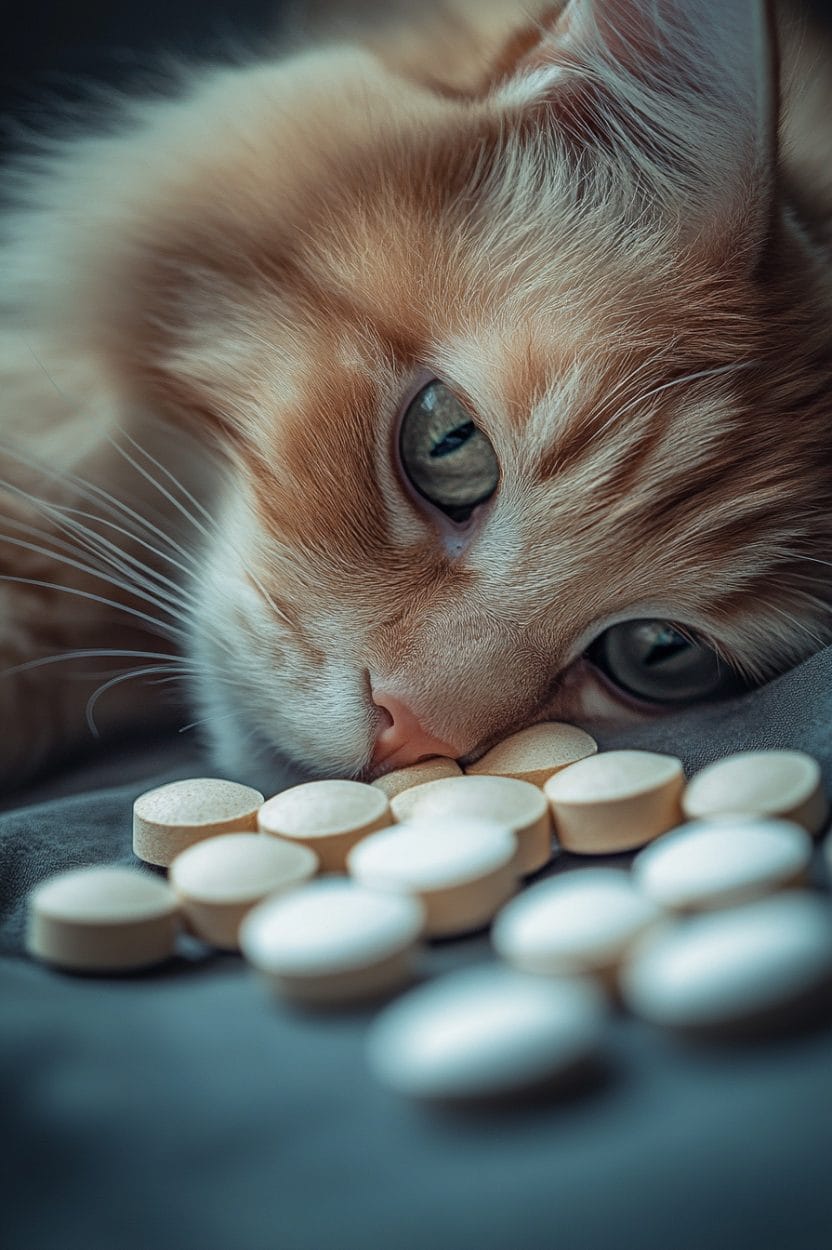
The Potential Risks of Over-Supplementation
While supplements can be beneficial, giving your cat unnecessary or excessive amounts can cause harm.
Vitamin toxicity
Some vitamins, like A and D, can be dangerous in high doses.
Too much vitamin A can cause bone problems or joint pain, while excessive vitamin D might lead to kidney damage or other serious health issues.
Nutrient imbalance
Giving your cat too much of one nutrient can interfere with how their body absorbs others.
This imbalance can lead to new health problems rather than solving the original issue.
Digestive problems
Overdosing on certain supplements, such as probiotics or omega-3 fatty acids, can upset your cat’s stomach.
Symptoms like diarrhea or vomiting are common when the dosage isn’t right.
Remember, more isn’t always better when it comes to supplements.
Always follow dosage guidelines and consult your veterinarian.
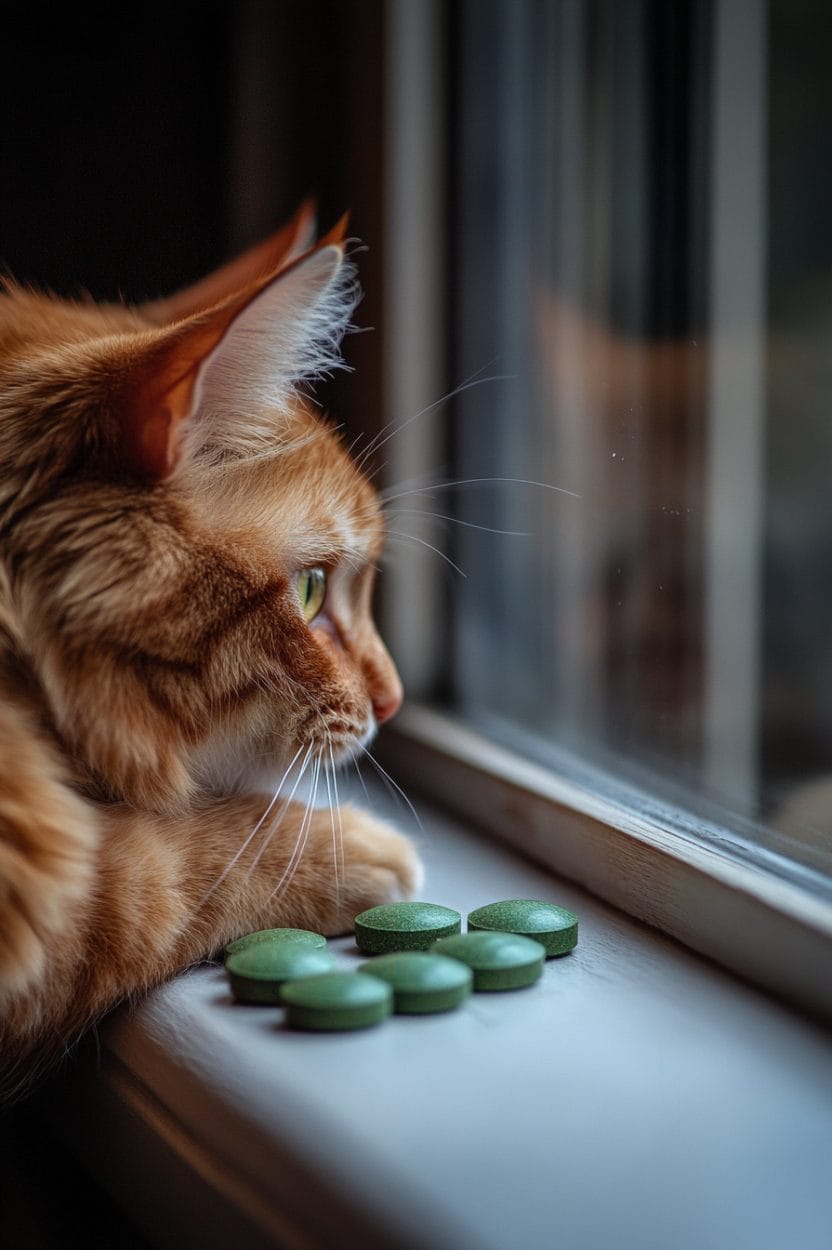
How to Choose the Right Supplements
Picking the right supplement for your cat can feel overwhelming, but a few simple tips can make the process easier and safer:
Talk to your vet first
Your veterinarian knows your cat’s health best.
Always consult them before starting any supplement to ensure it’s safe and beneficial for your pet.
Choose reputable brands
Not all supplements are created equal.
Look for brands that follow strict manufacturing standards and back their products with scientific research.
Quality matters when it comes to your cat’s health.
Check the labels
Read the ingredient list carefully. Avoid products with harmful fillers, artificial additives, or unnecessary extras.
The simpler and more targeted the formula, the better.
Focus on your cat’s needs
Select supplements that address specific health concerns your cat may have, such as joint health, digestion, or skin and coat care.
Tailoring supplements to their needs ensures you’re providing the most benefit.
Look for the NASC Seal
The National Animal Supplement Council (NASC) seal on a product indicates it has been made to high standards of quality and safety.
It’s a good way to identify trustworthy options.
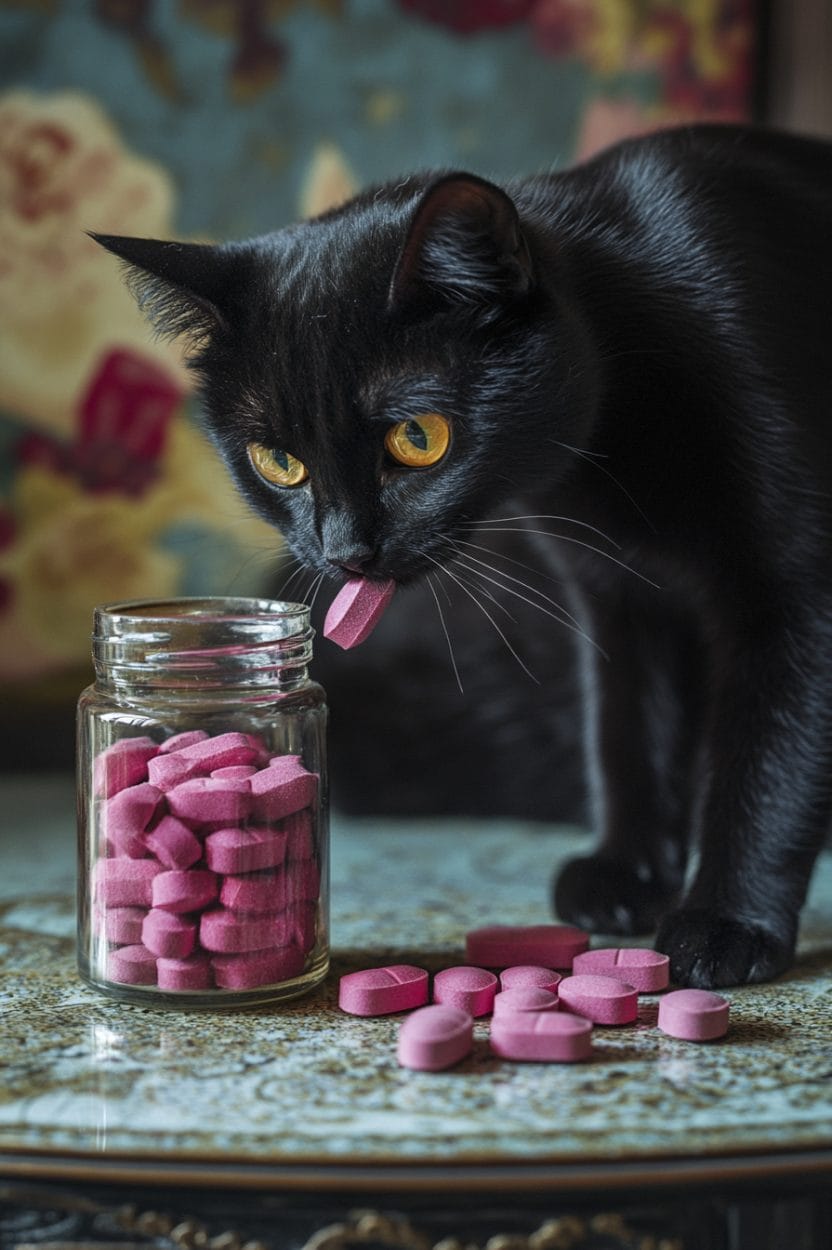
Final Thoughts
For most cats, a balanced diet is sufficient to meet their nutritional needs.
However, supplements can play a valuable role in addressing specific health issues or deficiencies.
The key is to use them judiciously and under veterinary guidance.
Remember, the best approach to your cat’s health is prevention: regular vet checkups, proper nutrition, and plenty of love and attention.
FAQs
No. Human supplements are not formulated for cats and may contain harmful ingredients. Always choose supplements specifically made for felines.
Consult your vet. Blood tests and physical exams can determine if your cat has any deficiencies or health conditions requiring supplements.
Yes! Foods like fish (rich in omega-3s) or pumpkin (for fiber) can naturally support your cat’s health. However, they should only be given in moderation.
It varies depending on the supplement and the health issue. For example, joint supplements may take several weeks to show noticeable improvement.
- Does Cat Litter Melt Ice? The Complete Guide to Winter Safety - January 30, 2026
- Happy Tail Dogs: Understanding This Common Canine Condition - January 29, 2026
- How Cold Can Outdoor Cats Handle? Feline Winter Safety - January 27, 2026


GIPHY App Key not set. Please check settings